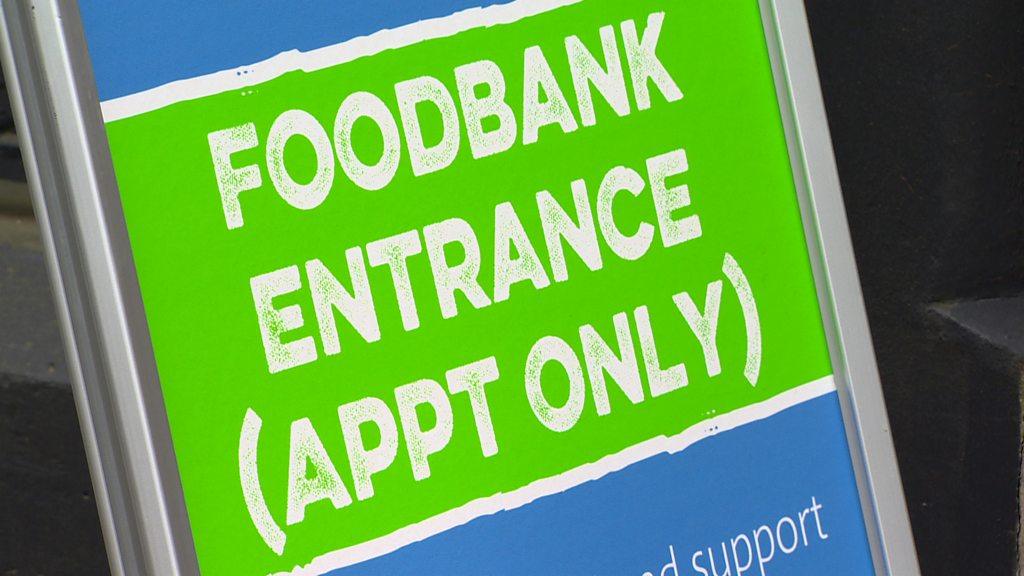Cost of living forces parents to use dirty nappies, says charity
- Published
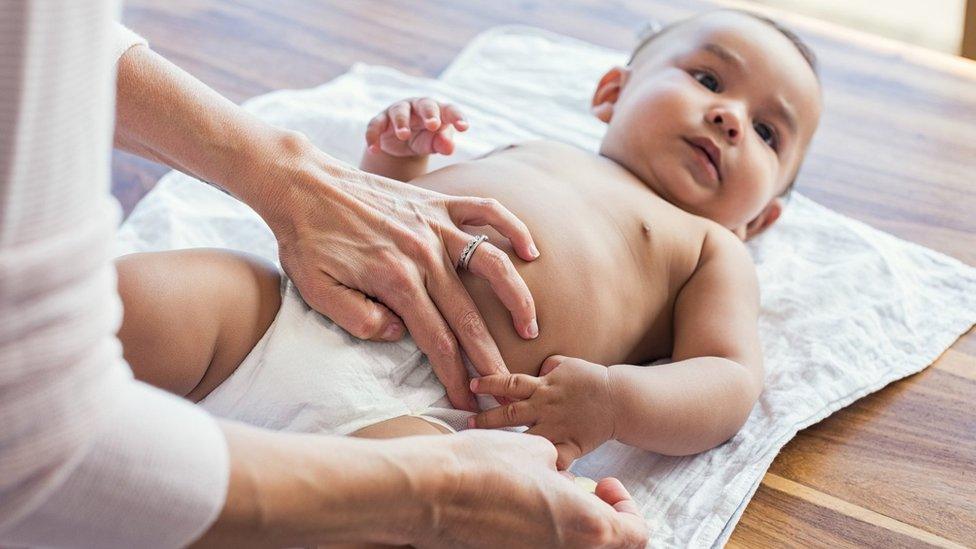
Parents are scraping out dirty nappies and reusing them, a charity worker said
The stigma around hygiene poverty is holding people back for getting help, a charity that provides toiletries to 125 foodbanks, schools and refuges in Northern Ireland has said.
The Hygiene Bank has distributed over 62.6kg of nappies, sanitary items and other products throughout Northern Ireland since 2020.
Its coordinator says some parents are reusing dirty nappies for their babies, in a bid to save money.
Families are also sharing toothbrushes.
Hilary Young, from Portglenone, County Antrim, said many people do not want to admit they need help but "when it comes to basic things particularly it's like a stigma, they feel ashamed they've had to do this".
"But more and more people are having to make that step," said Ms Young, who stores supplies for the charity in her garage.
'Scrape the nappies off'
Ms Young works with the Ballymena unit of the charity but said her work now included areas from Maghera and Magherafelt to Antrim and Ballyclare.
"We have had reports of if families haven't got nappies to change into a fresh nappy, they scrape the current nappy off, clean as much as they can, and put the nappy back on.
"It's hard to imagine having to do that, but sadly that's the case. Hard to imagine when you're not in that position, but sadly that's reality."
The charity worker said the need for personal items such as toilet roll and toothpaste is growing, with the charity opening another two bases in Northern Ireland in recent months.
"Initially we were blinded to the reality of the need out there," she continued.
"It used to be you'd have thought it was a far-off country, not your own country, or your own area. But no - it's very much on our doorsteps, sadly."
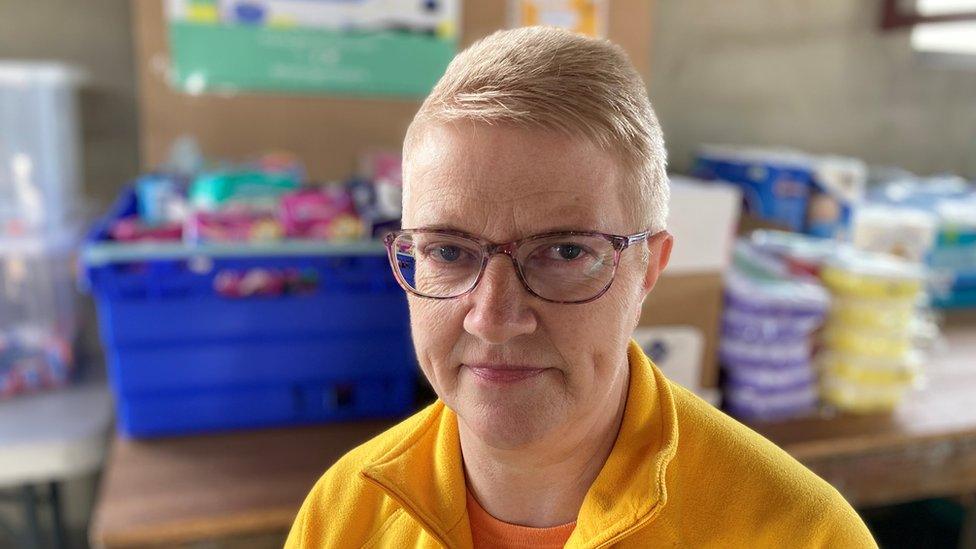
Hilary Young said things are getting worse for families in Northern Ireland
A family of five might only have one toothbrush to share around, and families weren't able to renew these every few months as would be advised, she said.
"I've been to Africa helping in an orphanage out there, and you expect it out there, but here you wouldn't imagine that to be the case. But sadly it is. And it's getting worse, unfortunately.
"A lot of the hygiene side of things hasn't been realised as much as it should be because it goes alongside needing food.
"We all need to eat, we need to wash, we need to do all those basic things, we need to keep warm especially when it's chilly mornings.
"The hygiene side of things is not talked about but it's very much real."
'Shouldn't be a treat'
Heather Boyd, the centre manager at the Maghera Cross Community Link, which runs a foodbank that receives donations from The Hygiene Bank, said she worried for schoolchildren who are not being washed for school.
"If kids are going to school without being washed or clean clothes it causes all sorts of problems for them," she told BBC News NI.
"We have seen how important it is to be able to wash.
"We've had a food bank for around nine years, but people are finding it so much harder.
"We used to be focused on just feeding people, but now it's so much more, working families are coming to us and steadily a lot of new faces in the last month.
"Families are grateful for a hygiene bag - those are the items which shouldn't be a treat, a toothbrush, shower gel."
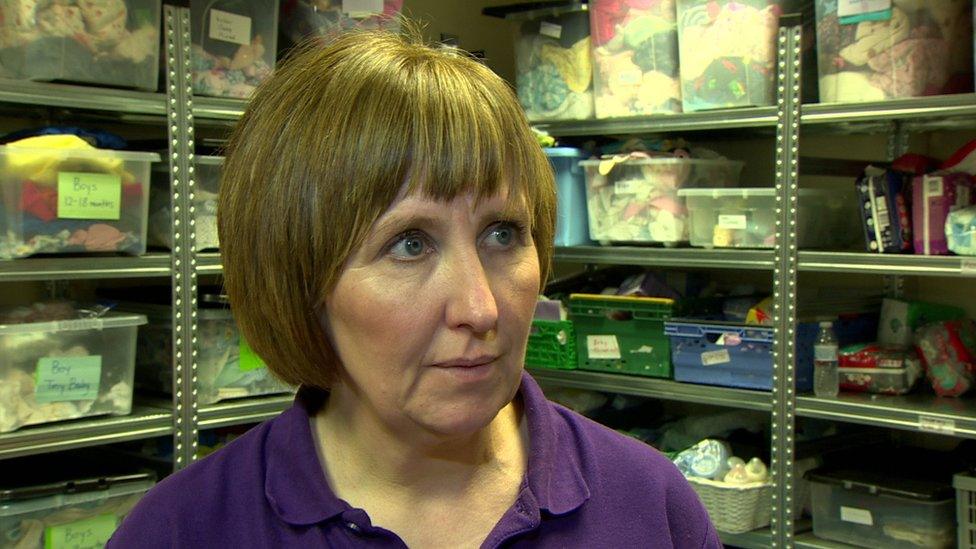
Antrim's Baby Bank could open for more than one day a week due to increasing demand, Sharon Caldwell said
Sharon Caldwell, the scheme organiser for the Baby Bank in Antrim which distributes essential supplies to families, said referrals had almost doubled in a year.
"People are not looking for luxuries, they're not looking for all the additional things, they are looking for the things we presume every child should have," she said.
Ms Caldwell said parents would often go without shampoo or shower gel in order to provide hygienic items for their babies.
"I wouldn't like to think what would happen if suddenly a place like ours did not exist," she said.
"People have gotten used to knowing that when they face a difficult week, when they are in crisis, if the worst comes to the worst, they know that their baby will have everything that they need."
You can hear Good Morning Ulster's interview with Hilary Young here.
- Published15 February 2024
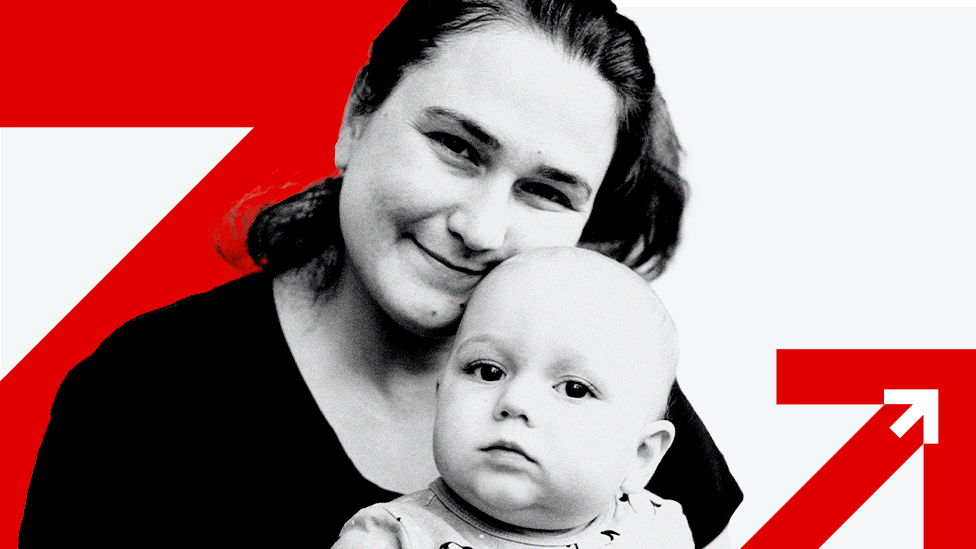
- Published4 May 2023
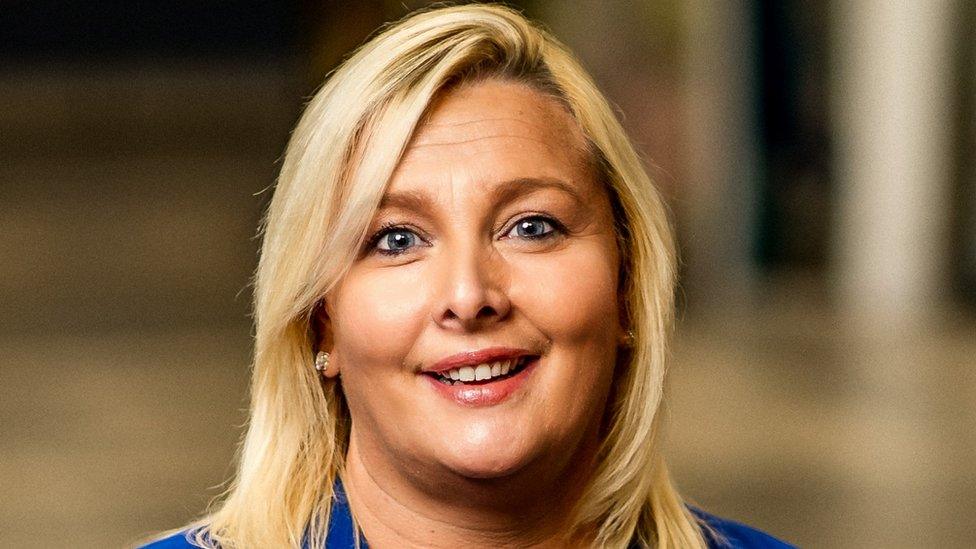
- Published2 May 2023
